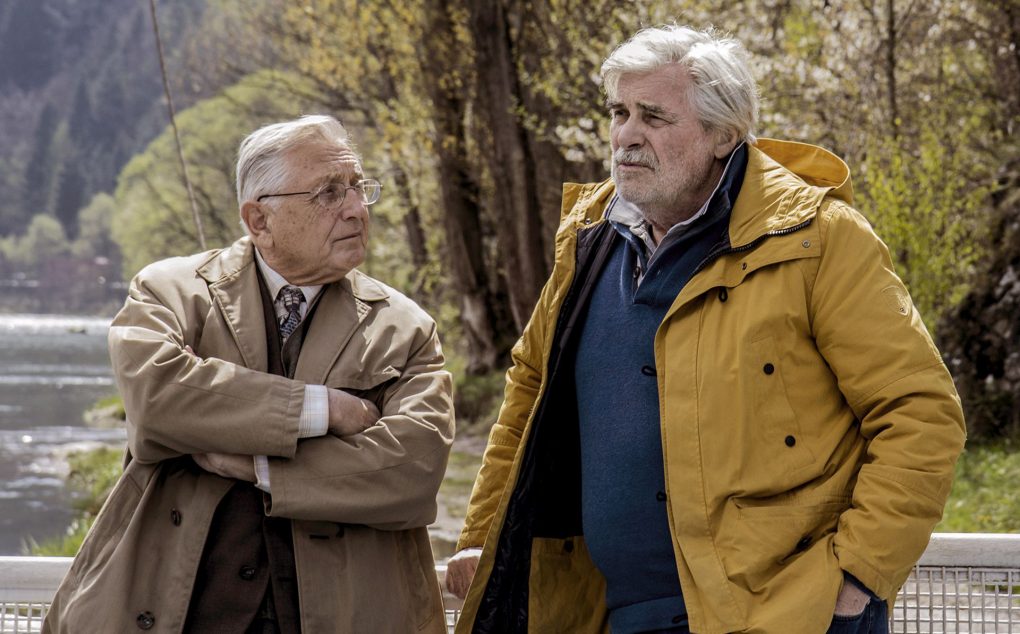
Wri/Dir: Martin Šulík | DoP: Martin Štrba | German, Slovak, 113′ | Cast: Peter Simonischek, Jiří Menzel, Zuzana Mauréry, Anita Szvrcsek, Anna Rakovská, Eva Kramerová, Réka Derzsi, Attila Mokos, Karol Šimon, Igor Hrabinský | World premiere | Drama
Peter Simonischek senses danger when he opens the front door of his elegant Vienna appartment to a well-dressed Jiří Menzel, who later emerges as the interpreter Ali Ungár in this war-themed drama levened by the same piquant humour the Austrian actor brought to Maren Ade’s satire Toni Erdman. A Slovakian Jew, Ali lost his parents during the war, and has tracked down the whereabouts of the SS officer responsible for their deaths. Georg (Peter Simonischek) quickly informs him that his father is dead. The atmosphere gently thaws as the pair gradually discover that the war has deeply affected them both in quite different ways. And Ali is not the only one keen to trace his roots. Georg recalls an eventful childhood filled with pride at his often absent officer father. Ali’s memories are swathed in dark shadows of loss and humiliation and he is still deeply traumatised by the loss of his parents. Keen to maintain his distance from a man he considers his vicarious enemy, he agrees to take Georg back with him to Slovakia charging a daily fee as his interpreter, and the two set off on an illuminating, and often tenderly moving journey to the past and themselves.
The Interpreter is above all a penetrating and poignant character piece punctuated by picaresque humour, Martin Šulík and co-scripter Marek Lescák deftly and sensitively conflate tragedy with comedy with meaningful results. Unlike the inflammatory Black 47 (2018) which revisits history stirring up hatred and stoking anger, The Interpreter is a far more conciliatory piece that seeks to promote understanding and pouring healing balm over still-smarting wounds in an enlightening exploration of a lesser known episode of the Holocaust – at least to more Western audiences. Martin Strba’s stylish camerawork captures sleek Viennese interiors and the transcendent tranquility of the Slovakian countryside in Spring.
The Second World War and its devastating effects are not the central thrust of the narrative, The Interpreter is a tribute that offers a refreshing take on events seen from the perspective of a generation who clearly remember things differently. The reveal in the final scene doesn’t come as a game-changer but offers further insight into the minds involved: Ali’s personality has been shaped by mistrust from childhood, but Georg is more instinctual in his reaction to events, which clearly mark him as the past unfolds. Both Menzel and Simonischek are brilliant in their depictions of men who are the products of their circumstances. Midnight Run and The Odd Couple spring to mind. Both men are endearing is their respective ways: Georg a wily, ebullient, womaniser; the curmudgeonly Ali proves an old-fashioned ally, but nobody’s fool. War has no winners or losers here but deeply effects us all. MT
BERLINALE 15-25 FEBRUARY 2018
https://vimeo.com/254993281